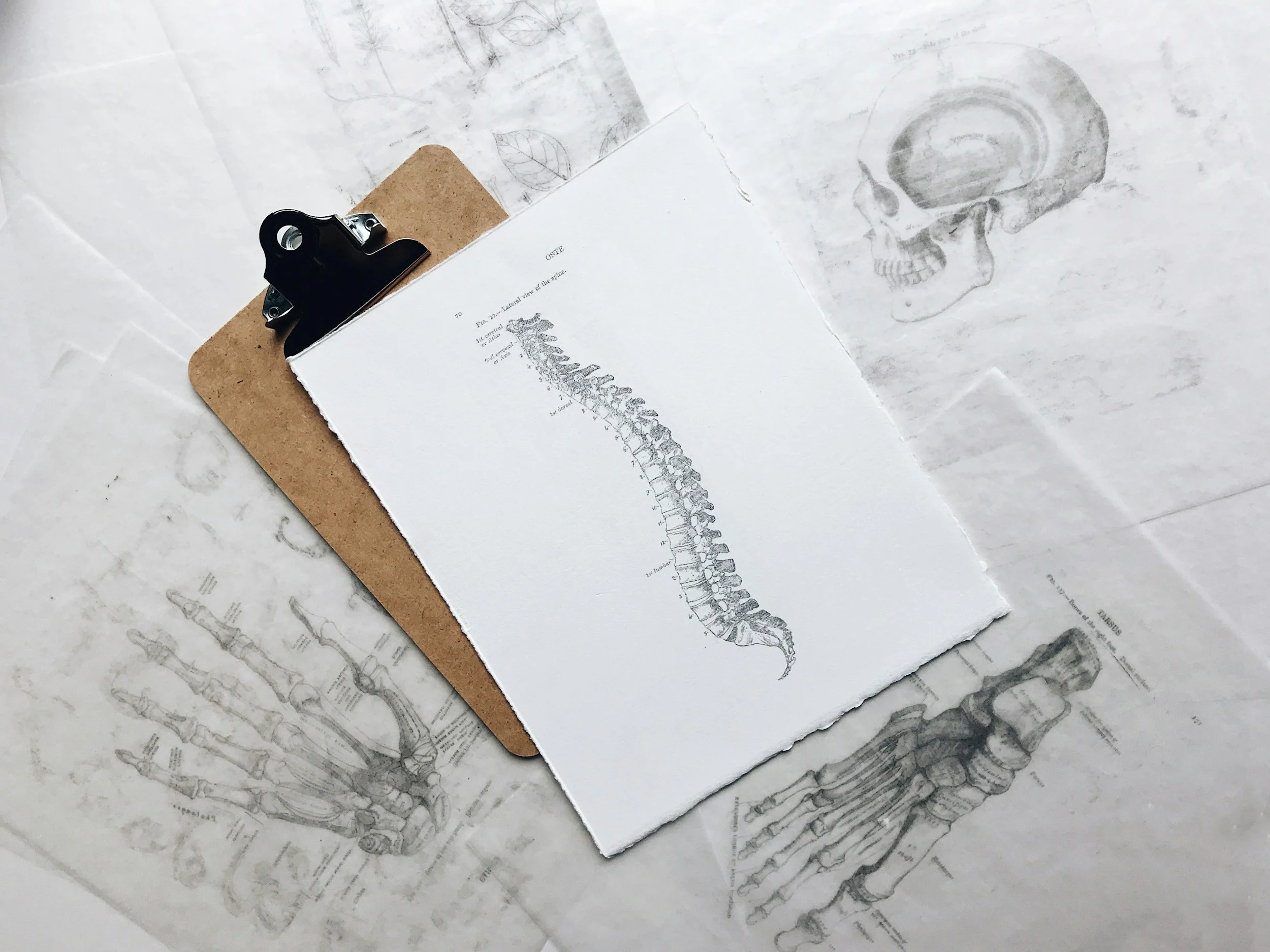Managing Reflux — Why Lifestyle Still Matters
In Part 1, we explored how digestion works when it’s in sync — and what happens when that delicate rhythm is disrupted. We looked at acid, bile, enzymes, and the fine balance between comfort and discomfort.
Now it’s time to turn the spotlight onto why that balance is so easily thrown off — especially for women navigating busy schedules, changing hormones, and heightened stress.
Because while reflux begins as a digestive issue, it’s often magnified by lifestyle and life stage. Stress, rushed eating, disrupted sleep, and emotional overload can all interfere with the gut–brain communication that tells your body how to digest.
And as we enter the season of celebratory meals, late nights, and rich food, understanding these links can make all the difference.
Everyday Habits That Tip the Balance
When several reflux-inducing factors layer together, they amplify one another — especially during busy or festive periods.
Overeating or Eating Too Quickly
(hello women juggling busy schedules and not prioritising mealtimes)
Digestion begins before the first mouthful. When you eat on the go, in the car, fast food, or between meetings, the cephalic response is blunted — no saliva, minimal stomach acid — and food lands in an unprepared stomach. The result is incomplete breakdown, delayed emptying, and pressure that pushes contents back up the oesophagus.
High-Fat Meals
Fat requires bile for proper digestion. If bile flow from the liver and gallbladder is sluggish — often due to low acid (continual PPI Use or otherwise) or due to chronic stress — the stomach may hold food longer until the small intestine is ready.
Caffeine, Alcohol, Chocolate, Peppermint, Tomato, and Citrus
These favourites all relax the lower oesophageal sphincter (LES) for some people. Timing and context matter — a coffee on an empty stomach or prosecco after a heavy meal are classic reflux triggers.
Late-Night Eating
Gravity is one of digestion’s simplest allies. Lying down soon after eating removes that support, allowing stomach contents to creep back up. Leaving two to three hours between your last meal and bedtime gives your body time to complete digestion before rest.
Each of these habits may seem minor on its own, but when combined with stress or disrupted sleep, they can overwhelm digestion.
Reflux is your body’s way of saying its communication network — between brain, stomach, liver, and intestines — needs a reset.
The Gut–Brain Connection: When Calm Meets Chemistry
Digestion is both physical and emotional. The vagus nerve carries signals between the brain and digestive tract, coordinating acid release, enzyme secretion, and bile flow before the first bite — a process known as the cephalic phase.
But modern eating rarely allows space for this preparation. Eating while distracted, working through meals, or grabbing food in a rush keeps the body in a low-grade fight-or-flight mode. In this state, vagal signalling weakens and the stomach doesn’t receive strong cues to release acid or enzymes.
Food lingers longer, fermentation begins, pressure builds, and discomfort rises.
Over time, repeated stressed eating blunts the cephalic phase further, and the body gradually loses its anticipatory "prepare for food" response. The result is a pattern of reflux, bloating, and sluggish digestion — not solely because of what you eat, but how you eat and the state of your nervous system.
Hormones, Midlife & Why Reflux Gets Worse
Although GERD is more common in men, rates rise noticeably in women after 50, pointing to the influence of fluctuating oestrogen. Hormonal fluctuations affect stomach acid production, the tone of the lower oesophageal sphincter, and the balance of the gut microbiome — including the oestrobolome, which helps regulate circulating oestrogen.
As oestrogen declines, the stress response also becomes more reactive, raising cortisol and adrenaline, both linked to gut dysbiosis and increased intestinal permeability. Together, these shifts make midlife women more vulnerable to bloating, constipation, loose stools, and reflux — even if they’ve never experienced these symptoms before.
The Problem with Symptom Suppression
As explored in Part 1, hydrochloric acid initiates key digestive reactions: activating enzymes, sterilising food, and signalling bile and pancreatic secretions.
Proton Pump Inhibitors (PPIs) work by blocking the acid-producing pumps in the stomach lining. This can bring rapid relief from discomfort, but because acid is the “starter signal” for digestion, long-term suppression can slow the entire cascade.
Hydrochloric acid isn’t the enemy — it’s essential for:
activating pepsin, the enzyme that breaks down protein
sterilising food to prevent microbial overgrowth
triggering bile and pancreatic enzyme release downstream
When acid remains low, the stomach compensates with more churning — recreating symptoms. PPIs aren’t “bad”; they serve a purpose. But long-term use without restoring underlying function is like turning down an engine noise while the mechanical issue remains unresolved.
The Metabolic Ripple Effect
Chronic reflux and long-term acid suppression don’t just affect digestion — they ripple outward to influence metabolism, energy, and resilience.
Nutrient depletion: Low acid impairs absorption of vitamin B12, magnesium, zinc, and iron — nutrients that fuel mitochondria, regulate hormones, and stabilise mood.
Energy regulation: Poor protein and fat breakdown limits amino acids and essential fatty acids, affecting blood sugar control, neurotransmitter production, and recovery.
Body composition & insulin sensitivity: Incomplete digestion leaves you under-fuelled yet experiencing blood-sugar swings, a mismatch that contributes to midsection weight gain and fatigue.
Inflammation: Low acid and altered bile flow can promote SIBO, increase inflammation — particularly relevant for midlife women.
Bone health: Suppressed acid reduces calcium and magnesium absorption, subtly increasing osteoporosis risk — particularly in post-menopausal women.
Addressing reflux early, therefore, isn’t just about comfort — it’s about metabolic protection.
Restoring Function Naturally
Reflux is feedback, not failure — a sign that your body’s finely tuned digestive system needs recalibrating.
True healing means addressing the why, not just the what — rebuilding acid balance, restoring bile flow, enhancing vagal tone, and nurturing a calmer, more responsive nervous system.
Here are a few simple yet powerful ways to support that process and calm reflux naturally:
Identify and manage food triggers – Identifying and removing irritants temporarily allows the digestive tract to repair (may require functional testing). These foods can often be reintroduced once the gut lining has healed. Including nourishing foods such as bone broth to promote healthy motility and gut lining repair.
Support stomach acid and digestive secretions – Incorporate natural bitters like rocket, radicchio, or a splash of apple-cider vinegar before meals to promote bile secretion.
Eat in a calm state – Step away from screens, take a few deep breaths, or pause in gratitude before eating. These small rituals activate your vagus nerve and re-engage the cephalic phase that prepares your body for digestion.
Optimise timing and posture – Leave two to three hours between your last meal and bedtime, avoid tight waistbands, and take a gentle walk after meals to support smooth stomach emptying.
In clinic, these foundations are often paired with targeted nutritional and lifestyle support — gentle, science-based strategies that rebuild trust between brain and gut. Once that communication is restored, digestion feels smoother and energy steadier, and dependency on symptom management reduces.
A Whole-Body Approach to Digestion
Supporting reflux naturally doesn’t mean avoiding medical care; it means creating the right environment for your body to heal. In my practice, I assess stomach acid, bile flow, and enzyme sufficiency — but also posture, sleep, and stress. For clients on PPIs, we create safe, stepwise strategies to restore function without rebound symptoms.
Digestion isn’t only about what you eat; it’s about how your body is able to receive it.
As the season unfolds, giving your digestion the same attention as your social calendar can make the experience far more enjoyable. A well-supported gut doesn’t just ease reflux — it steadies energy, mood, hormones, and your ability to truly enjoy food again.
How I can help?
If you’re currently on PPIs — or wondering if you can reduce your reliance on them — I offer complimentary mini consultations to help you explore safe, science-based ways to support your digestion naturally. Book you call using button below.
References
11 Stomach-Soothing Steps For Heartburn. Harvard Health. 2020. https://www.health.harvard.edu/staying-healthy/11-stomach-soothing-steps-for-heartburn.
Antunes, C., Aleem, A. and Curtis, S.A., 2023. Gastroesophageal reflux disease. In StatPearls [Internet]. StatPearls Publishing.
Freedberg, D.E., Lebwohl, B. and Abrams, J.A., 2014. The impact of proton pump inhibitors on the human gastrointestinal microbiome. Clinics in laboratory medicine, 34(4), p.771.
Heidelbaugh, J.J., 2013. Proton pump inhibitors and risk of vitamin and mineral deficiency: evidence and clinical implications. Therapeutic advances in drug safety, 4(3), pp.125-133.
Infantino, M., 2008. The prevalence and pattern of gastroesophageal reflux symptoms in perimenopausal and menopausal women. Journal of the American Association of Nurse Practitioners, 20(5), pp.266-272.
Konturek, P.C., Brzozowski, T. and Konturek, S.J., 2011. Stress and the gut: pathophysiology, clinical consequences, diagnostic approach and treatment options. J Physiol Pharmacol, 62(6), pp.591-599.
Mayer, E.A., 2000. The neurobiology of stress and gastrointestinal disease. Gut, 47(6), pp.861-869.
McMullen, M.K., Whitehouse, J.M. and Towell, A., 2015. Bitters: time for a new paradigm. Evidence‐Based Complementary and Alternative Medicine, 2015(1), p.670504.
Roxas, M., 2008. The role of enzyme supplementation in digestive disorders. Alternative medicine review, 13(4).


